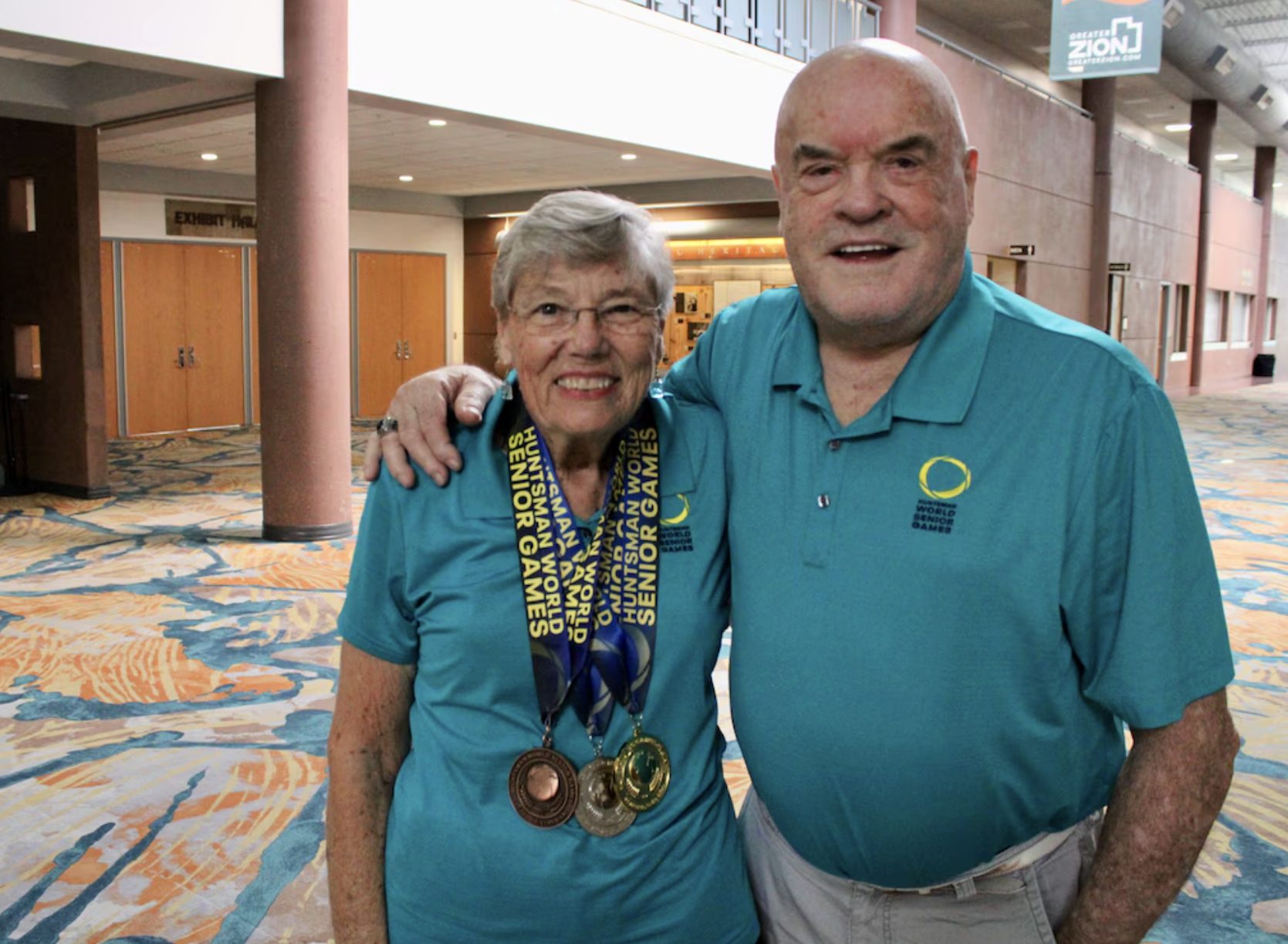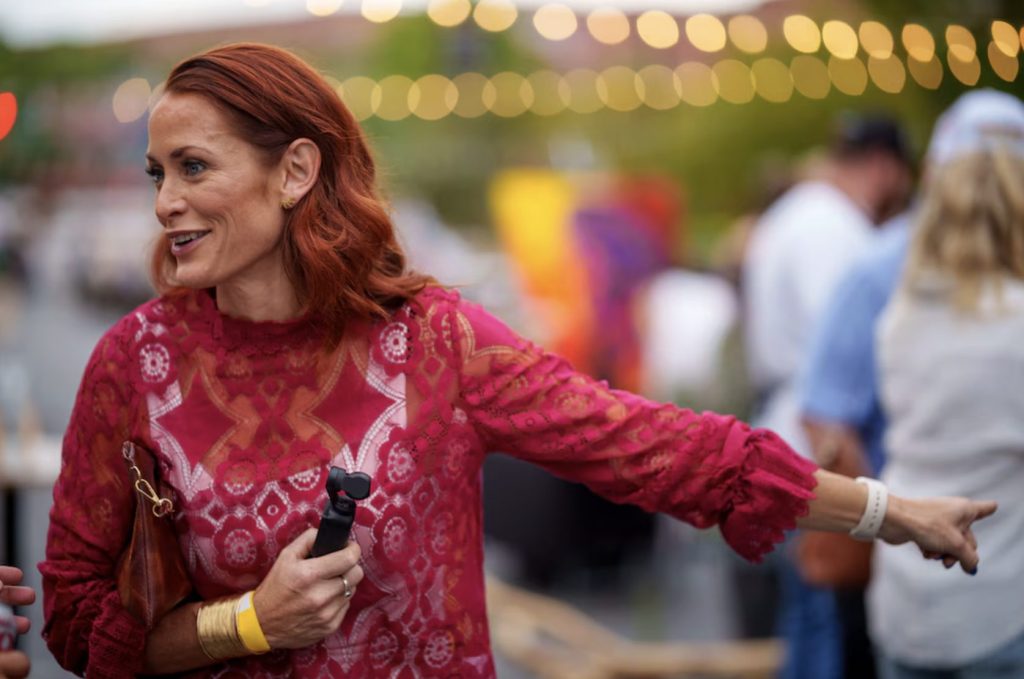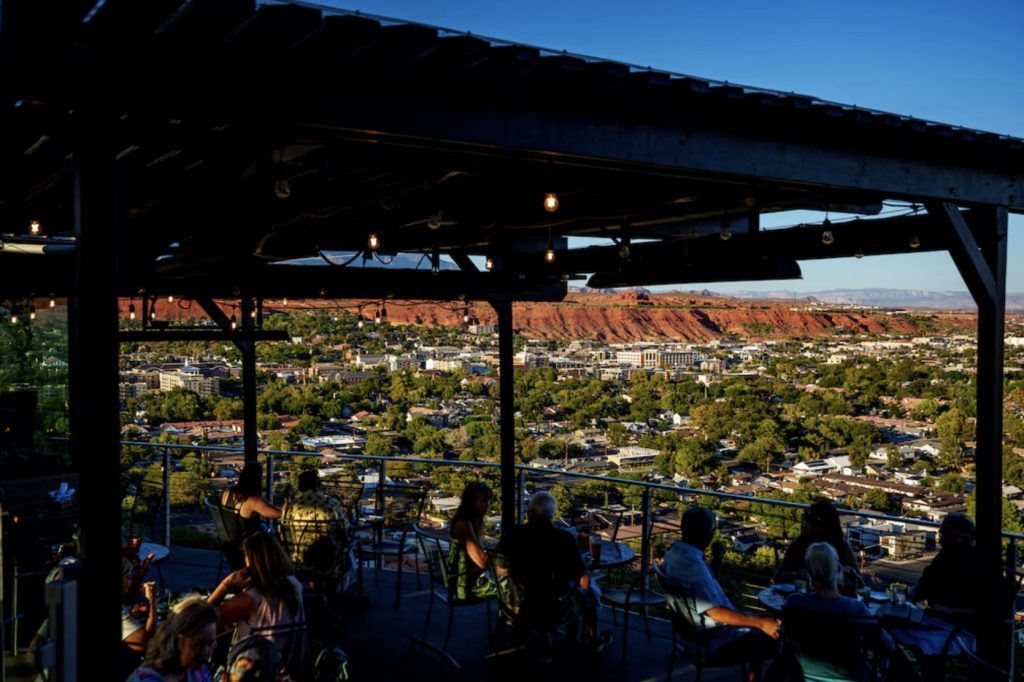From pickleball and powerwalking to bowling and track and field, athletes ages 50+ descend on southern Utah to compete.
Note to readers: Lexy Borgogno, editor-in-chief of the Sun News Daily, wrote this story for The Southern Utah Tribune. You can read more stories about southern Utah for free at southernutahtribune.org.
The 38th Huntsman World Senior Games have begun and 12,000 athletes from all over the world are in St. George to compete in events ranging from tennis and cycling to cowboy action shooting and power walking.
“You see teams come in from Brazil and I mean all over the world,” volunteer Stan Rasmussen said. “It takes them days to get here. And it just makes you feel so special that they would come to St. George, Utah.”
It’s the largest annual Olympic-style event in the world for athletes over age 50, said Games CEO Kyle Case. This year 28 countries are represented, and the event generates around $42 million over the two-week period, he said.
Yet, without the support and dedication of volunteers like Rasmussen, the Games would cease to exist.
The 3,000 volunteers fill 5,300 shifts during the Games that end Oct. 18. They chauffeur athletes on golf carts, make sure no one gets hit during target shooting and keep athletes well fed, among other jobs.

Becky Smith, program director for the Games who started out as a volunteer, said: “I’ve never seen a volunteer that wasn’t smiling because they’re here… And time and time again, I’ve heard athletes say, ‘I want to come back. The competition is good, but I want to come back because I was so well treated.’”
Volunteers like Stan and Sherril Rasmussen, Bruce Pickett, and Randy and Karen Harris sign up every year because of the connections they’ve made — with fellow volunteers and athletes.
They’re also the reason why the athletes feel at home in St. George.
Case said he’s run into athletes outside of the Games and has been told, “‘It’s like the whole community just opens their arms for us when we come to this town.’ I feel like our volunteers are the vanguard in that effort. They’re the first ones.”
‘Come and have fun with us.’
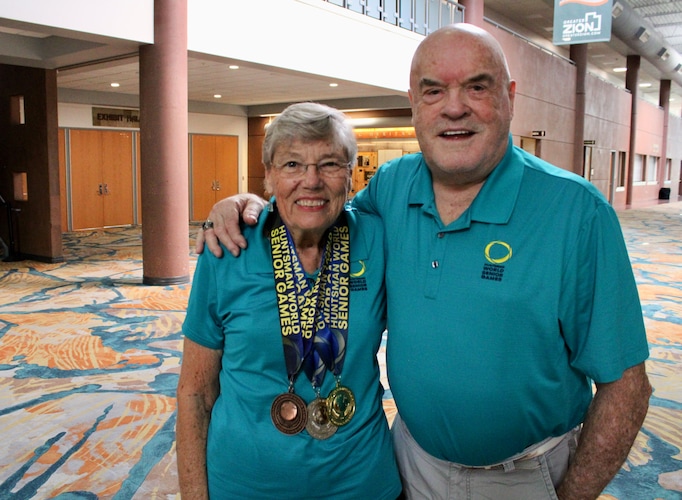
Stan and Sherril Rasmussen are athletes and volunteers. They both compete in bowling — 27 years for Stan and 17 years for Sherril. Stan said bowling and pickleball are the events that fill up the quickest, so if you’re not registered by 12:01 a.m. in March, then you’re not getting a spot.
“When my oldest son was born, we used to take him as a baby and put him on the bench and we bowled,” Sherril, 75, said.
They started volunteering nine years ago when a former coworker and the Games’ chief financial officer found out Sherril was retired and asked her to help. They are two of six people who are in charge of check in, meaning they oversee fellow volunteers and all of the thousands of athletes. It’s such a big job they used to volunteer from 7 a.m. to 9 p.m. to get everything done.
Among the 12,000 athletes who check in, some stand out, like the participants in the western shoot, who arrive in their chaps, jackets with tassels and cowboy hats.
“Some of them got their six shooters on the sides when they come check in,” Stan, 76, said.
He added that on their busiest days, the line of athletes stretches down multiple hallways and reaches the front doors of the Dixie Convention Center, for a 45-minute wait for athletes.
Stan and Sherril have also recruited their daughter and one of their granddaughters as well, making volunteering at the Games a family affair.
In fact, Stan’s favorite memory is when his brother was on his softball team in 2002, the only year his brother played.
“My brother was on second base, and… the bases were loaded,” Stan said. “I got to hit up a grand slam and come round and high five my brother.”
In their years of competing, they’ve won 12 gold medals, 17 silver and 18 bronze — enough for each of their 12 grandchildren to inherit one of each medal.
“Just come and have fun with us,” Sherril said. “Come and enjoy the wonderful people that come to St. George.”
‘I’m going to be involved.’
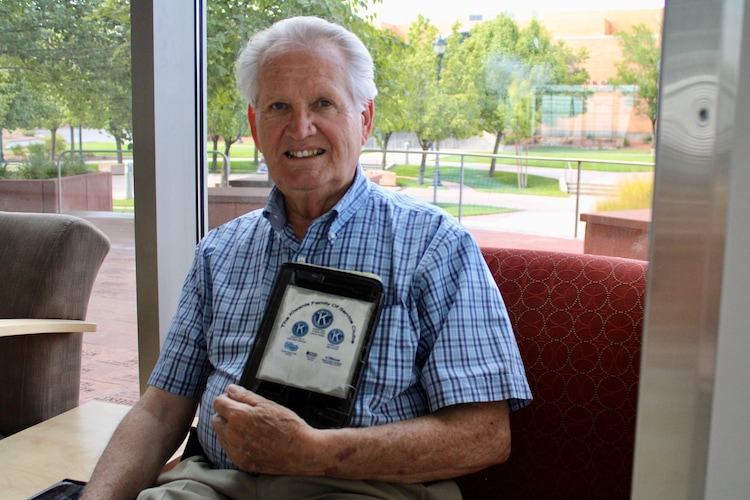
Bruce Pickett was born and raised in St. George, and after living in California, returned to his roots where he’s been living for over 20 years.
“We call it red sand in the blood stream,” he explained about moving back to St. George. “It’s that magnet pull that pulls us back.”
With volunteering also in his blood, Pickett, 79, is involved with Circle K, Key Club and Kiwanis, which are international service clubs. He devotes as much time as possible to service in his community.
“I was raised that way,” Pickett said. “My father was very involved… It’s just been part of me, so I haven’t really thought of it any other [way].”
He is one of the refreshment directors who oversees the preparation and delivery of goods to game sites, and has been volunteering at the Games for five years.
Pickett takes time off his part-time job for the two-week period of the Games to volunteer 10 to 12 hours per day.
“I think more than anything else, I just enjoy doing it,” Pickett said. “The association, the staff, the CEO, and the different people that I work with, become friends. And, what am I to do, sit home and watch TV until I die? I’m going to be involved.”
Pickett said that when athletes visit St. George year after year, some of them decide this is where they want to live.
“I’m proud of what [the] Huntsman World Senior Games has done for the community, and what it’s done in bringing people in,” Pickett explained. “I’m proud of this area. This is home.”
‘They begged us to come back.’
Randy and Karen Harris used to live in St. George, and now live in Stansbury Park. Yet, they still drive four hours to volunteer every year so Randy, 73, can lend his voice.
He has been the announcer for track and field for 10 years, and Karen, 67, enters results to be shown on the stadium board.
After missing one year of the Games while serving a mission for The Church of Jesus Christ of Latter-day Saints in Salt Lake City, Randy proved to be such an integral part that he and Karen returned to the announcer booth.
“They begged us to come back,” Randy said. “It’s kind of complicated, and you’ve got to have the right voice for it, and you’ve got to be able to communicate clearly and get everything right.”
Karen said he’s known for his voice at home, too. “Even in church, there’s been many times where they’ve asked him to be the narrator for Christmas programs or things like that. You just have the voice for it.”
Karen enters the winners’ names on the scoreboard, which is highly anticipated. Athletes will “stand there and stare at the board for an hour waiting for their name to pop up,” Randy said.
One thing that sticks out to them is how dedicated the senior athletes are. Randy said some were high school or college athletes, and some were in the Olympics in their countries.
“You think, ‘Oh, these are all old people that are not going to be able to do much track and field,’” Randy said. “But that is the thing that is furthest from the truth… we just always sit in wonder and awe and watch these guys just race down the track. It’s amazing.”
Note to readers • The version of this story printed in The Southern Utah Tribune and in its digital e-edition had incorrect figures for the number of volunteer shifts necessary to make the Games run smoothly and the estimated monetary value of volunteers’ time. The e-edition has been updated to include the 5,300 shifts and remove the value estimate. This story did not include those errors.
